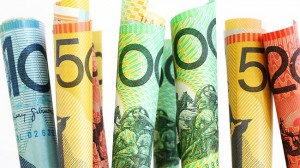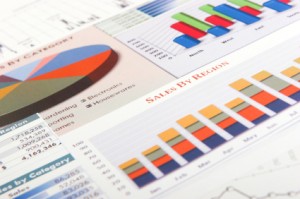Value has different meanings to different people depending upon their opinions, or circumstances in...
What is Value?

I am not going to venture into any moral or philosophical debates about what value means. Concepts such ‘intrinsic value’ and ‘extrinsic value’ can be quiet abstract at this level.
However, as a forensic accountant and business valuer, it is curious that there are so many different business-related answers (ignoring legal definitions) to this seemingly simple question.
Value – as used by accountants
Accounting ‘speak’ is peppered with so many different types of value, each having different meanings including:
- ‘historical cost value’ which typically refers to the original purchase price;
- ‘replacement cost value’ which refers to the cost of replacing the asset at current prices;
- ‘net realisable value’ which typically relates to the likely net sale value of inventory in its current state if it is below the cost value;
- ‘written-down value’ which refers to the net book value of fixed assets after allowing for depreciation; and
- ‘value in use’ which refers to the present value of the future cash flows to be derived from an asset.
Value – as used by economists
It would appear that economists refer to ‘price’ when discussing ‘value’ however it is difficult to make such a generalisation given the existence of so many different economic theories.
I recently caught a documentary about how the recent events leading up to and during the Global Financial Crisis (“GFC”) mirrored the events leading up to and during the Great Depression of the 1930’s. This documentary pitched economists into two camps: ‘rational’ and ‘behavioural’.
The ‘rationalists’ have long argued that participants in stock markets quickly obtain all new information about stocks and therefore adjust their future expectations about those stocks which will accordingly be reflected in the stock prices. This is known as the Efficient Market Hypothesis which assumes a paradoxical situation whereby the fact there are so many analysts trying to ‘beat’ the market (ie finding situations where there is deviation between the ‘price’ and ‘true value’ of stocks) actually results in the situation where the price will quickly equal the true value.
The ‘behaviouralists’, on the other hand, point to the speculative investor behaviour during the ‘bull’ markets proceeding the major Wall Street collapses in 1929 and 2007 which lead to the Great Depression and the GFC respectively. Investor greed fuelled situations where ‘price’ and ‘value’ increasingly diverged over a period of time resulting in the creation of ‘bubbles’. As we all know, these bubbles subsequently burst. This discredits the Efficient Market Hypothesis.
As a consumer, it is not that hard to think of simple examples which give merit to the behaviouralists’ thinking – those familiar with buying or selling on Ebay might have some anecdotal evidence to draw from to support the view that ‘price’ does not necessarily equate to ‘value’.
Value - as used by business valuers
There are many instances in which a business is required to be valued including:
- for compliance with accounting standards;
- for tax purposes;
- for transactional purposes; or
- for litigation purposes.
When it comes to valuing a particular business, there may be no ‘active’ market in which the business can be readily bought or sold, or if there are potential buyers and sellers there is typically information asymmetry between participants (even on a regulated stock market) and/or the particular party participants may agree not to act at arm’s length (eg family dealings). Due to these sorts of real-world situations, the business valuer typically adopts a value definition which assumes the following characteristics:
- a hypothetical market featuring a willing and able buyer and seller,
- parties acting at arm’s length;
- parties are not under any compulsion/anxiety to buy or sell; and
- parties are knowledgeable.
Concepts such as ‘market value’, ‘fair value’ or ‘fair market value’ may feature in a valuation report which share the above type of characteristics and assume a value in exchange expressed in cash equivalents at a particular point in time. The value definition in this context is therefore an estimate and the value could change significantly depending on the point in time in which the value is assessed. For example, a business may be valued on a ‘going concern’ basis prior to the GFC (which assumes the business will continue to trade in the foreseeable at that particular point in time) but the same business may be valued on a ‘fire-sale’ basis during the GFC (which assumes a need to realise the value of assets quickly because of liquidity concerns at that particular point in time).
There is another type of value of relevance to business valuers which may be referred to ‘special value’ which may include synergies to an identifiable buyer or value to the owner.
At the end of the day, ‘value’ is ultimately dependent on and determined by the purpose for which it is required.



